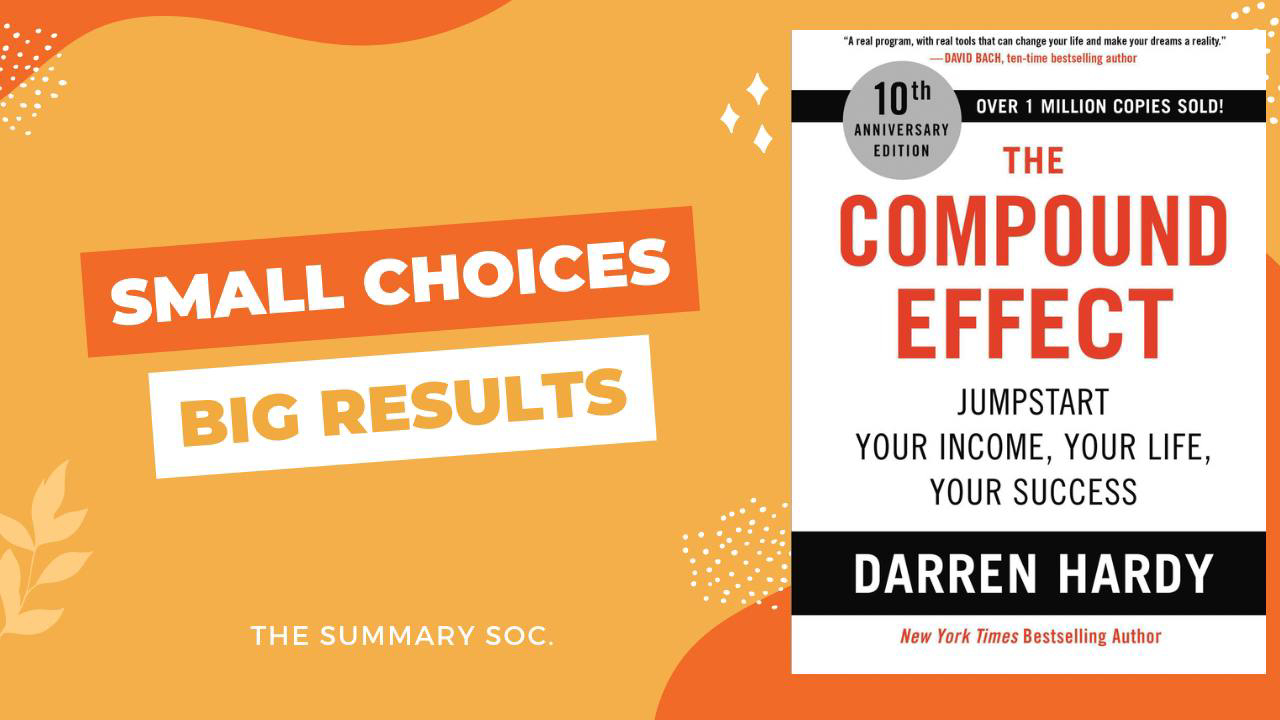Do you ever feel like you're stuck in a rut? You set goals, work hard, but never seem to make much progress. It's frustrating, but there is a solution - the Compound Effect. In this article, we'll explore the principles behind the Compound Effect book, how it works, and how you can apply it to achieve success in your own life.
What is the Compound Effect?
The Compound Effect is a book by Darren Hardy that explains how small, consistent actions can lead to significant results. It's the idea that success is not achieved overnight, but rather through the power of consistency over an extended period of time.
The Compound Effect is all about taking small actions consistently, such as reading for 15 minutes a day, exercising for 30 minutes a day, or making a small investment each month. These actions may seem insignificant in the moment, but when done consistently over time, they can lead to significant results.
How Does the Compound Effect Work?
The Compound Effect works through the power of habits. When you consistently take small actions, they become habits. And once something becomes a habit, it requires less effort and willpower to maintain.
For example, let's say you want to improve your financial situation. Instead of trying to save a large amount of money all at once, you could start by setting aside a small amount each month. Over time, that small amount will compound, and you'll have a significant amount of savings without even realizing it.
The Compound Effect is also about making small adjustments to your behavior to achieve big results. By making small changes to your daily routine, you can improve your health, relationships, and finances.
Examples of the Compound Effect in Action
Here are some examples of the Compound Effect in action:
Weight Loss: Instead of trying to lose a large amount of weight all at once, you could start by making small changes to your diet and exercise routine. Over time, those small changes will add up, and you'll achieve significant weight loss.
Personal Development: Instead of trying to read an entire book in one sitting, you could read for just 15 minutes each day. Over time, you'll have read dozens of books and improved your knowledge and skills.
Financial Planning: Instead of trying to save a large amount of money all at once, you could start by setting aside a small amount each month. Over time, that small amount will compound, and you'll have a significant amount of savings without even realizing it.
Applying the Compound Effect to Your Life
Now that you understand the principles behind the Compound Effect, here are some tips for applying it to your own life:
Set small, achievable goals: Instead of setting lofty goals that may be difficult to achieve, set small, achievable goals that you can work towards each day.
Create a daily routine: Consistency is key to the Compound Effect. By creating a daily routine, you can ensure that you're consistently taking small actions towards your goals.
Measure your progress: Tracking your progress can help you stay motivated and see the results of your efforts over time.
Stay focused: It's easy to get distracted or lose motivation over time. Stay focused on your goals by reminding yourself of the long-term benefits of your small actions.
Conclusion
The Compound Effect is a powerful concept that can help you achieve success in any area of your life. By taking small, consistent actions and making small adjustments to your behavior, you can achieve significant results over time. Apply these principles to your own life and see how the Compound Effect can help you achieve your goals.
~~~
Quotes
"Small, Smart Choices + Consistency + Time = RADICAL DIFFERENCE."
"The Compound Effect is the principle of reaping huge rewards from a series of small, smart choices."
"The difference between success and failure is not dramatic. In fact, the difference between success and failure is often subtle shifts in behavior, compounded over time."
"You will never change your life until you change something you do daily. The secret of your success is found in your daily routine."
"Success is a few simple disciplines, practiced every day; while failure is simply a few errors in judgment, repeated every day."
"It's not what you do once in a while; it's what you do day in and day out that makes the difference."
"The Compound Effect is the operating system that drives the results in every area of your life."
"The biggest difference between successful people and unsuccessful people is that successful people are willing to do what unsuccessful people are not."
"Small choices lead to habit. Habit leads to a lifestyle. Lifestyle determines your destiny."
"No one is going to give you anything. You have to earn it. The Compound Effect will help you do just that."
Tags:
Self-Help
